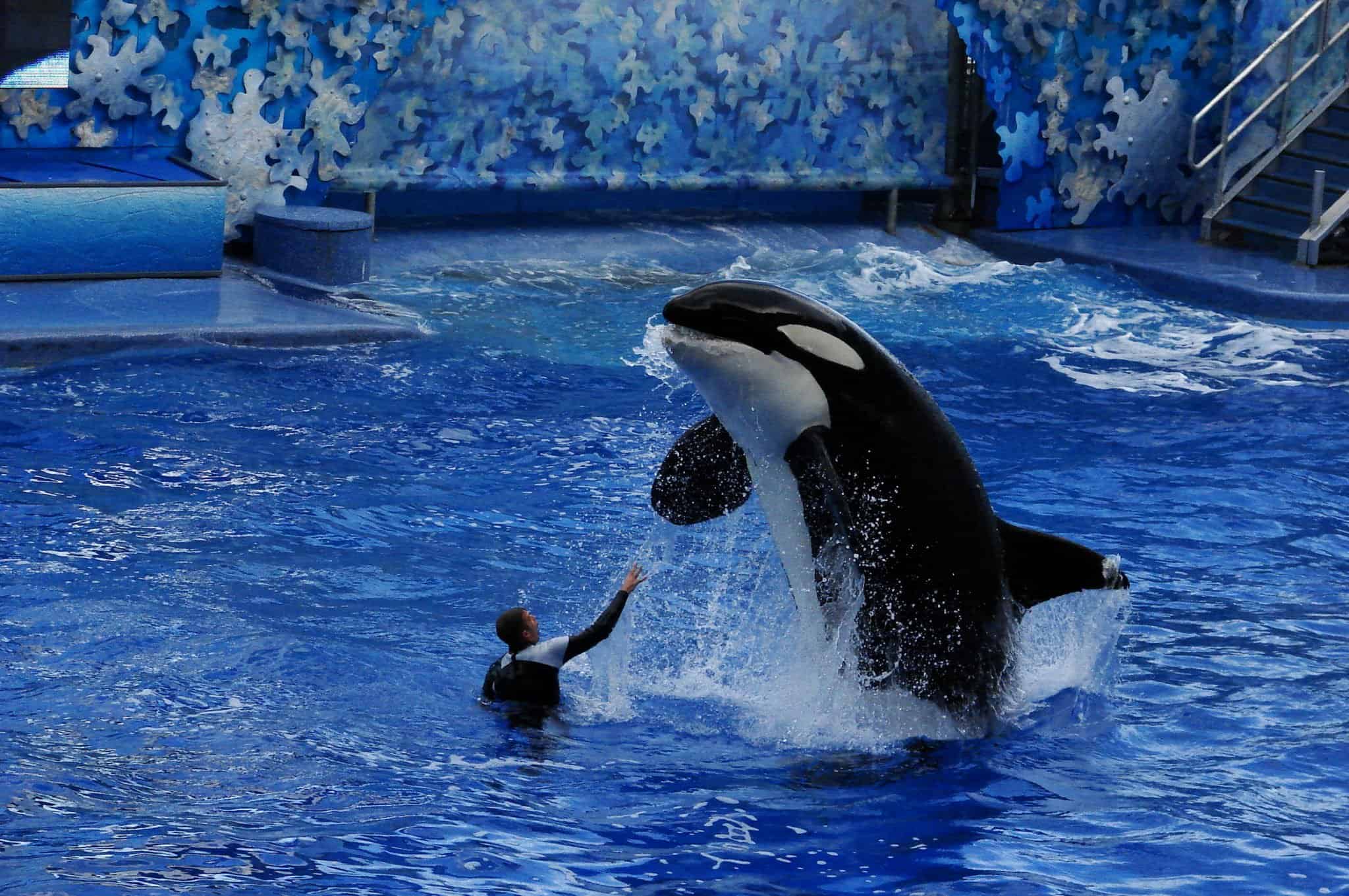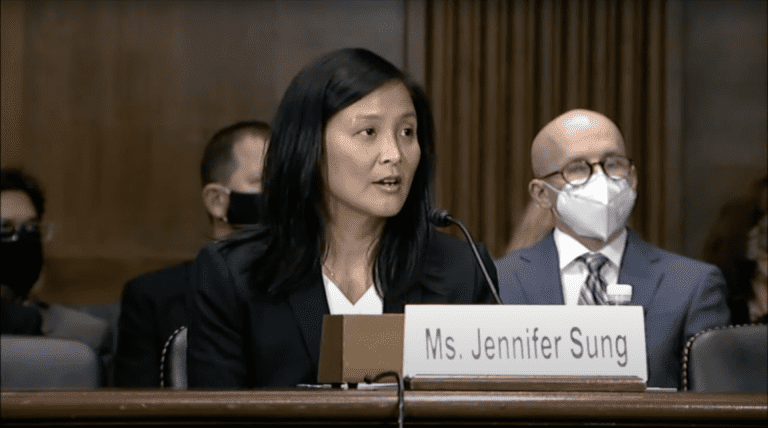
Andrew Strom is a union lawyer based in New York City. He is also an adjunct professor at Brooklyn Law School.
In 2010, a trainer at SeaWorld drowned when the killer whale she was working with during a performance “grabbed her and pulled her off the platform into the pool, refusing to release her.” The Occupational Safety and Health Administration (OSHA) investigated the incident and issued citations to SeaWorld for willfully exposing trainers to the recognized hazards of drowning or injury while working with killer whales during performances. An Administrative Law Judge (ALJ) upheld the citation, the Occupational Safety and Health Review Commission agreed, and two out of three judges on the D.C. Circuit denied SeaWorld’s petition for review. But Brett Kavanaugh, Donald Trump’s nominee for the Supreme Court, dissented, arguing that OSHA lacked authority to “paternalistically decide” that the trainer needed to be protected from the whale. If the Senate confirms Kavanaugh’s nomination, we can expect repeated instances where he will similarly insist that the agencies that Congress created to protect workers and the general public somehow overstepped their authority.
Congress enacted the Occupational Safety and Health Act in 1970. In 1977, a unanimous Supreme Court explained that the law was passed because Congress concluded “that work-related deaths and injuries had become a ‘drastic’ national problem.” The law requires employers to provide employment that is “free from recognized hazards that are causing or are likely to cause death or serious physical harm” to workers. Despite the “unqualified and absolute” language in the statute, over the years, the courts have interpreted the law to apply only where “a feasible means to eliminate or materially reduce the hazard exist[s].”
In the SeaWorld case, there was substantial evidence that SeaWorld knew that its killer whales posed serious risks to trainers. In fact, the same whale that was involved in the 2010 incident had previously killed another trainer at a different marine park. There was also evidence in the record of other dangerous incidents involving other killer whales at SeaWorld (e.g. in 2006 a killer whale had pulled a trainer underwater and repeatedly submerged him for 10 minutes). The ALJ had also found that OSHA’s proposed means of abating the hazard – maintaining a minimum distance from the killer whale or imposing a physical barrier between the killer whale and the trainer – was feasible, and in fact, had already been implemented by SeaWorld.
At the D.C. Circuit, SeaWorld argued that OSHA overreached because trainers “formally accepted and controlled their own exposure to risks.” But, the majority on the court recognized that “Congress’s decision to place the duty to ensure a safe and healthy workplace on the employer, not the employee” overrides any alleged assumption of risk by workers. While SeaWorld cited a case where a citation issued to a chemical manufacturer was set aside because the only remedy would have been to close the plant, the Court rejected the analogy because SeaWorld never argued either that a public perception of danger to its trainers was essential to its business or even that the abatements proposed by OSHA would reduce its profits.
In the coming weeks, I’m sure we’ll hear a great deal about Judge Kavanaugh’s commitment to “textualism.” Textualism is a theory that in interpreting a statute, the only thing that matters is the words of the statute, and not the problem the legislature was trying to address. Yet, in this case, Kavanaugh conceded that nothing in the language of the statute limited OSHA’s authority to issue the citation to SeaWorld. Instead, he decided that somehow OSHA lacks any authority to regulate “sports events or entertainment shows” because otherwise OSHA might try to “prohibit the punt return in football,” or change “the distance between the mound and home plate in baseball.” But, as the majority pointed out, “had Congress intended all unsafe and unhealthy performances in the entertainment industry to be beyond the scope of employee protection, it could have included such an exemption in the Occupational Safety and Health Act, and it did not.”
To Kavanaugh, the attempt to make workplaces safer raises the question of “when should we as a society paternalistically decide that the participants in these … entertainment activities must be protected from themselves?” It’s as though Kavanaugh can’t imagine that someone might want to be an animal trainer and also have safer working conditions. Kavanaugh’s dissent rested heavily on the concession by OSHA that it can’t ban the “normal activities” intrinsic to an industry. But apart from his apparent preference for blood sport, it’s not clear what legal analysis he used to decide that physical barriers or minimum distances between trainers and killer whales would be incompatible with the normal activity of killer whale performances. And again, as the majority pointed out, it’s not clear why OSHA’s authority to regulate professional sports is even relevant since “no one has described SeaWorld’s killer whale performances as a ‘sport.’” But Kavanaugh’s approach to the case is a sort of parlor trick relied upon by right-wing judges. Taking an argument that was never raised by SeaWorld to the agency, Kavanaugh insisted that OSHA “cannot reasonably distinguish close contact with whales at SeaWorld from tackling in the NFL,” so if OSHA is not ready to regulate tackling, then it is arbitrary to issue a citation to SeaWorld. But, as the majority explained, “no principle of administrative law requires an agency to anticipate and distinguish a hypothetical that a party did not raise until its subsequent appellate briefs.” At least not yet. But make no mistake about it — Trump has nominated Kavanaugh and Gorsuch before him precisely to make it harder to regulate corporations, and it should come as no surprise to anyone when they deliver on that promise.
As Kavanaugh’s dissent in the SeaWorld case illustrates, the vision he will bring to the high court is one where the people who work at regulatory agencies are sneered at as “bureaucrats,” and the measures the agencies take to sand the edges off of unbridled capitalism are dismissed as “paternalism.” My advice to workers is to fasten your seatbelts (while you still have them) because it’s going to be a bumpy ride.










Daily News & Commentary
Start your day with our roundup of the latest labor developments. See all
March 4
The NLRB and Ex-Cell-O; top aides to Labor Secretary resign; attacks on the Federal Mediation and Conciliation Service
March 3
Texas dismantles contracting program for minorities; NextEra settles ERISA lawsuit; Chipotle beats an age discrimination suit.
March 2
Block lays off over 4,000 workers; H-1B fee data is revealed.
March 1
The NLRB officially rescinds the Biden-era standard for determining joint-employer status; the DOL proposes a rule that would rescind the Biden-era standard for determining independent contractor status; and Walmart pays $100 million for deceiving delivery drivers regarding wages and tips.
February 27
The Ninth Circuit allows Trump to dismantle certain government unions based on national security concerns; and the DOL set to focus enforcement on firms with “outsized market power.”
February 26
Workplace AI regulations proposed in Michigan; en banc D.C. Circuit hears oral argument in CFPB case; white police officers sue Philadelphia over DEI policy.